What exactly is I-SAFE-4-EU?
In November 2021, UniLaSalle Rouen obtained a grant for its Jean Monnet module, entitled International sustainable Agri-Business & Food Engineering for the European Union (I-SAFE-4-EU).
I-SAFE-4-EU, the International Sustainable Agri-Business & Food Engineering for the European Union is an Erasmus+ Jean Monnet module led by the UniLaSalle Rouen campus and co-financed by the European Union under the reference 101048041.
This 3-year project officially began on March 1, 2022, and ended on February 28, 2025.
Three editions of this module have been organized as part of the I-SAFE (International Sustainable Agri-Business & Food Engineering) international engineering program at UniLaSalle. This project, a pioneer in France as the first Jean Monnet module specializing in agriculture, is an example for French and European institutions.
This interdisciplinary program on the EU was structured around three complementary and closely interlinked teaching units:
- The students were prepared for a week-long study trip to Brussels, through academic courses and activities focusing on international and European agricultural policies, as well as on the functioning of the European institutions.
- A week-long study trip was organized every November in Brussels. This traveling workshop consisted of a series of visits to various locations (companies, institutes, agencies, fields) on the theme of “European agricultural policies seen from the inside”.
- Weekly seminars were organized, where guest experts addressed various topics relating to the European Union.
The project aimed to promote excellence in teaching and research, while fostering dialogue between the academic world and society. It sought to generate knowledge to support European Union policies and to reach a wider audience. It also aimed to disseminate knowledge about the EU beyond academia, to raise awareness among the general public.
In view of the satisfaction rates of the students who participated in I-SAFE-4-EU, revealed below, it appears that the program was very much appreciated.
Année 1
| Weekly seminar | 91,60% |
| International farming systems | 91,60% |
| Study trip | 100,0% |
Année 2
| Weekly seminar | 88,6% |
| International farming systems | 85,7% |
| Study trip | 100,0% |
Année 3
| Weekly seminar | 94,7% |
| International farming systems | 100,0% |
| Study trip | 100,0% |
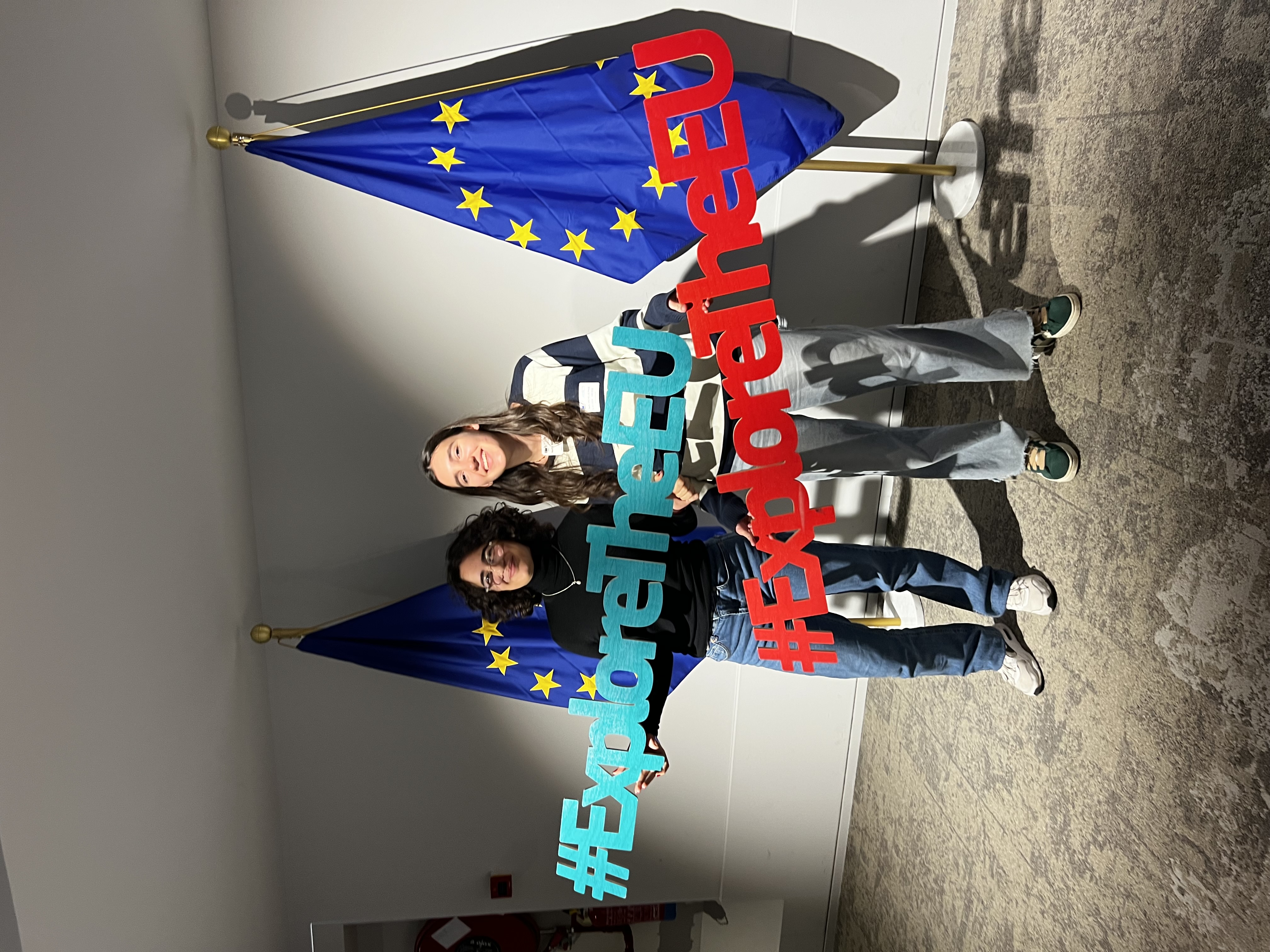
Preparing for study trips
In the run-up to the study trip to Brussels, the students took part in lectures and tutorials that enabled them to deepen their understanding of the agricultural system on an international scale. They also carried out group research on the functioning of the European Union, in particular on its agricultural policies, and presented the results of their work to the class. Before and during the trip, the students had the opportunity to meet professionals in the sector through presentations, thus enriching their practical experience.
The courses covered topics such as:
- International Farming system
- Interventions by professionals in the sector
- Preparation of study trips through the study of European institutions and agricultural programs:
- environmental Policy in the EU
- agricultural Policy in the EU
- common Agricultural Policy (CAP)
- CAP Tools
- European Commission
- EU Parliament
- European Economic and Social Commitee (EESC)
- European council
- How Parliament, the commission and council are running together
- European Commitee of the Regions (CoR)
- EU Today: an overview
- EU Tomorrow : what could we expect?
Study trips
The study trips took place every year in November between 2022 and 2024, for one week, in Brussels, at the heart of the European institutions. These immersive trips gave students the opportunity to meet key EU players and discover how the EU works from the inside. The visits and meetings were carefully organized, including European institutions and major organizations related to agricultural and environmental policies.
Among the places and institutions visited were:
- European Commission
- European Parliament (Hemicycle)
- Parlementarium
- European Economic and Social Committee (EESC)
- European Committee of the Regions (CER)
- Via Campesina
- FNSEA
- BEUC (European Consumers' Organization)
- COPA-COGECA
- EU Food Policy Coalition
- Museum of Natural History
- Permanent exhibition center “Experience Europe”
- Museum of the House of European History
Although the main visits remained the same each year, adjustments could be made depending on the availability of the speakers.
The students also took part in interactive activities, such as role-playing games, in order to better understand the political and decision-making issues of the EU. These activities were designed to enrich their experience and strengthen their understanding of European dynamics, particularly in the agricultural and environmental fields.
Following the study trips, the students created posters highlighting a visit or meeting that particularly made an impression on them. To discover an overview of the visits made during these trips, we invite you to view some of these posters by clicking here.
Below you will find photos taken during each study trip, along with feedback from the students.
Study trip year 1
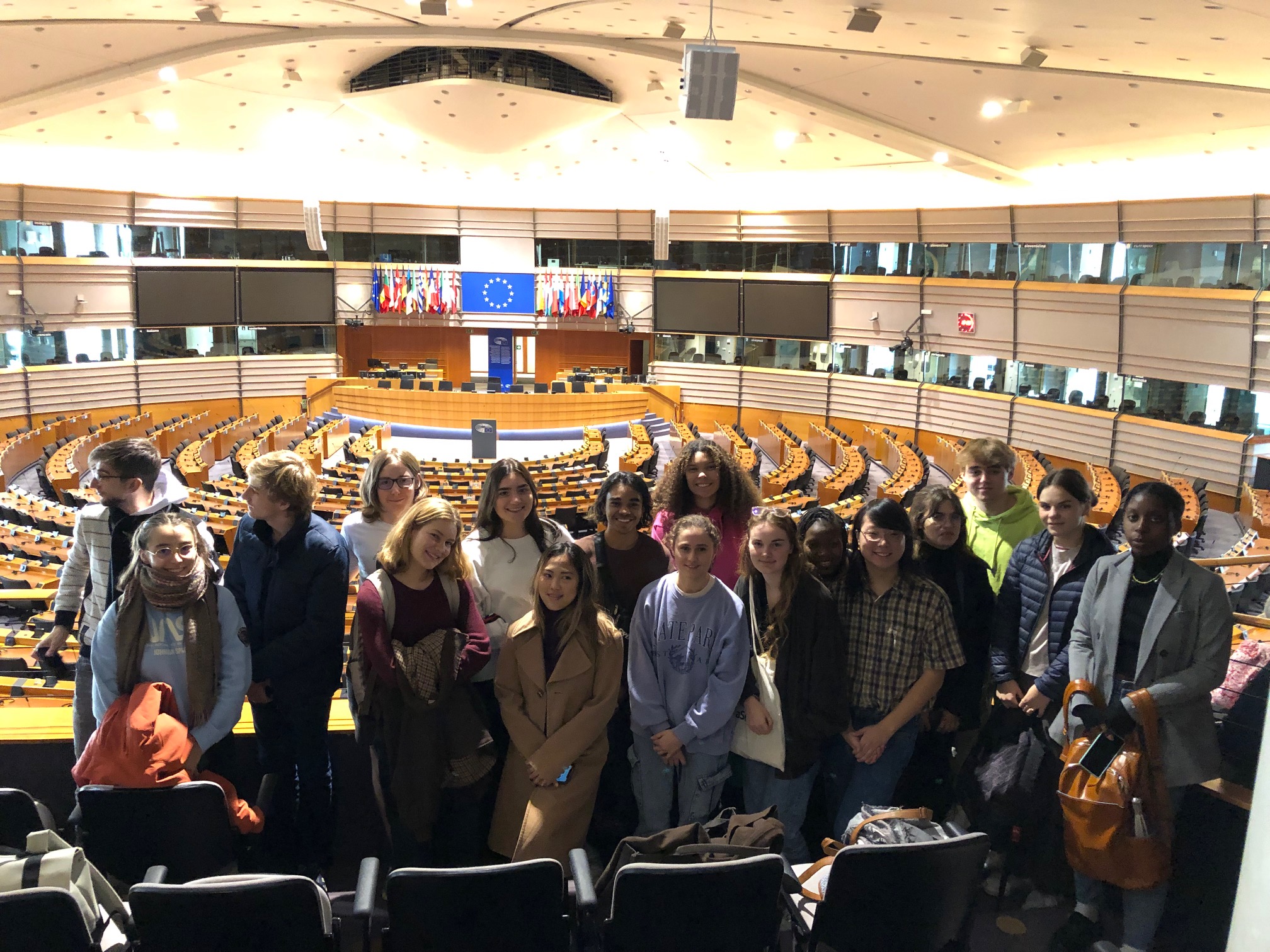
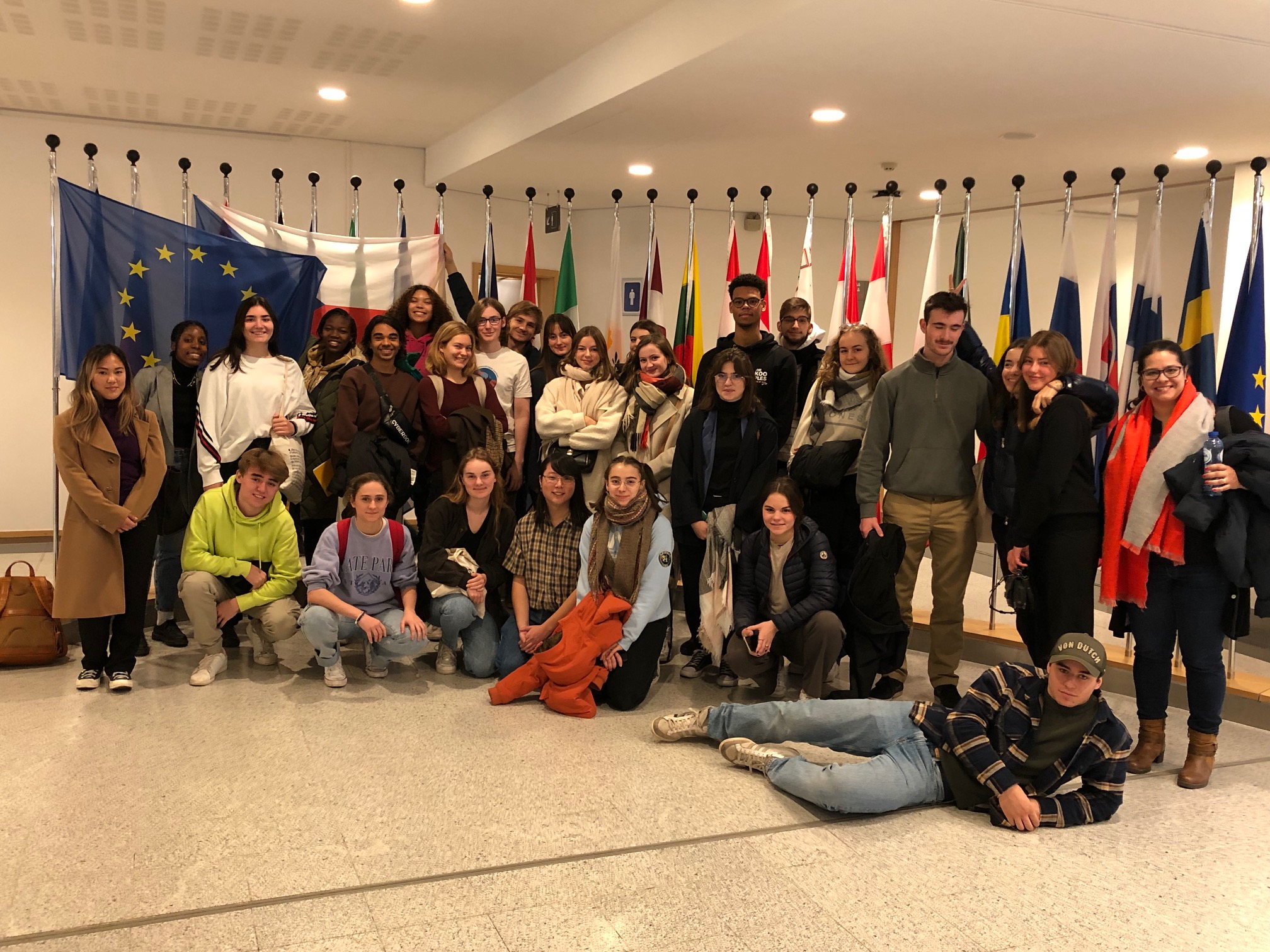
"Very interesting - visit the 'seat of Europe' is very useful for my personal project"
"It was really a great time, the ratio of conferences to free time was perfect, and the organization was on point. Really loved!"
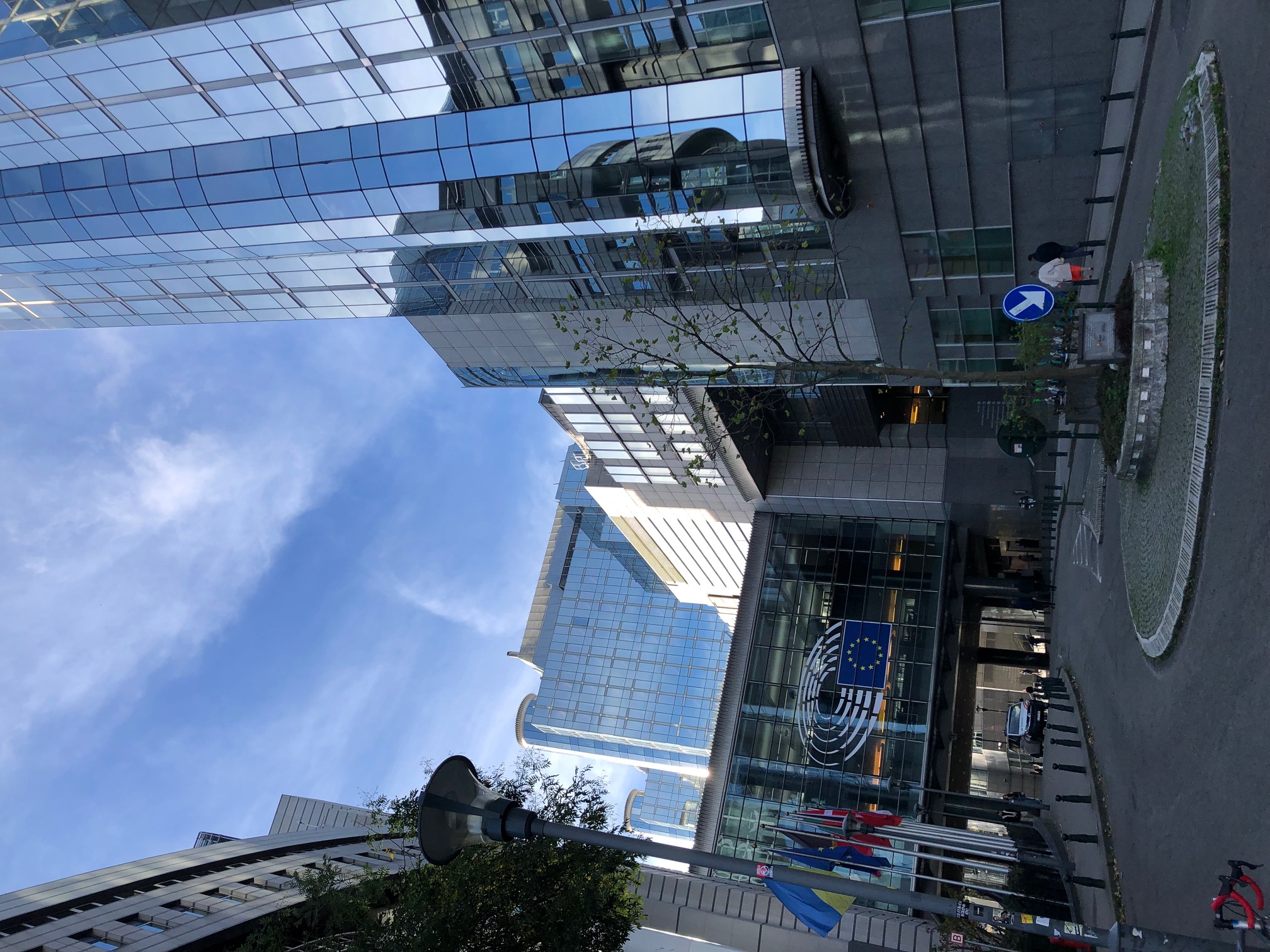
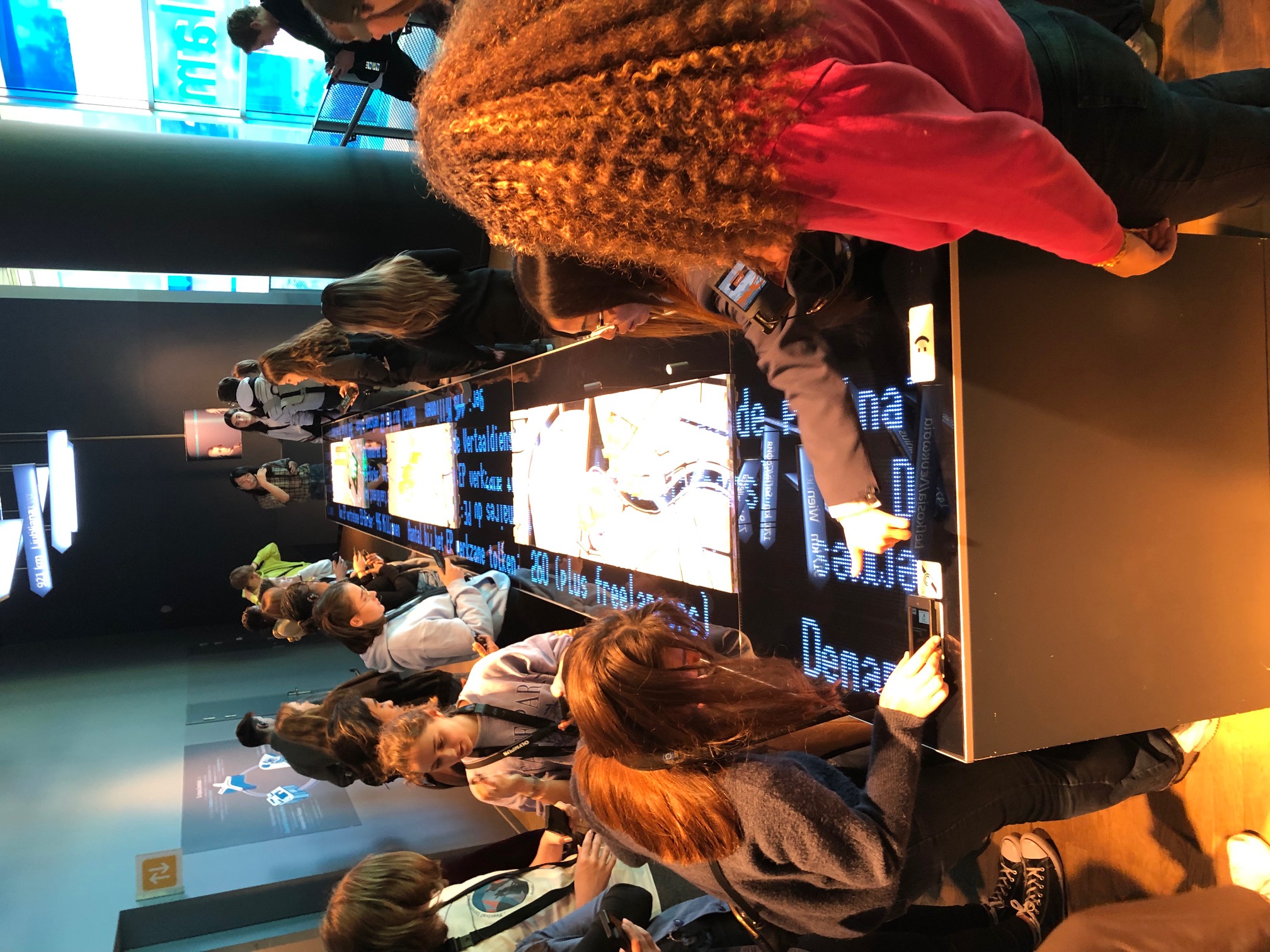
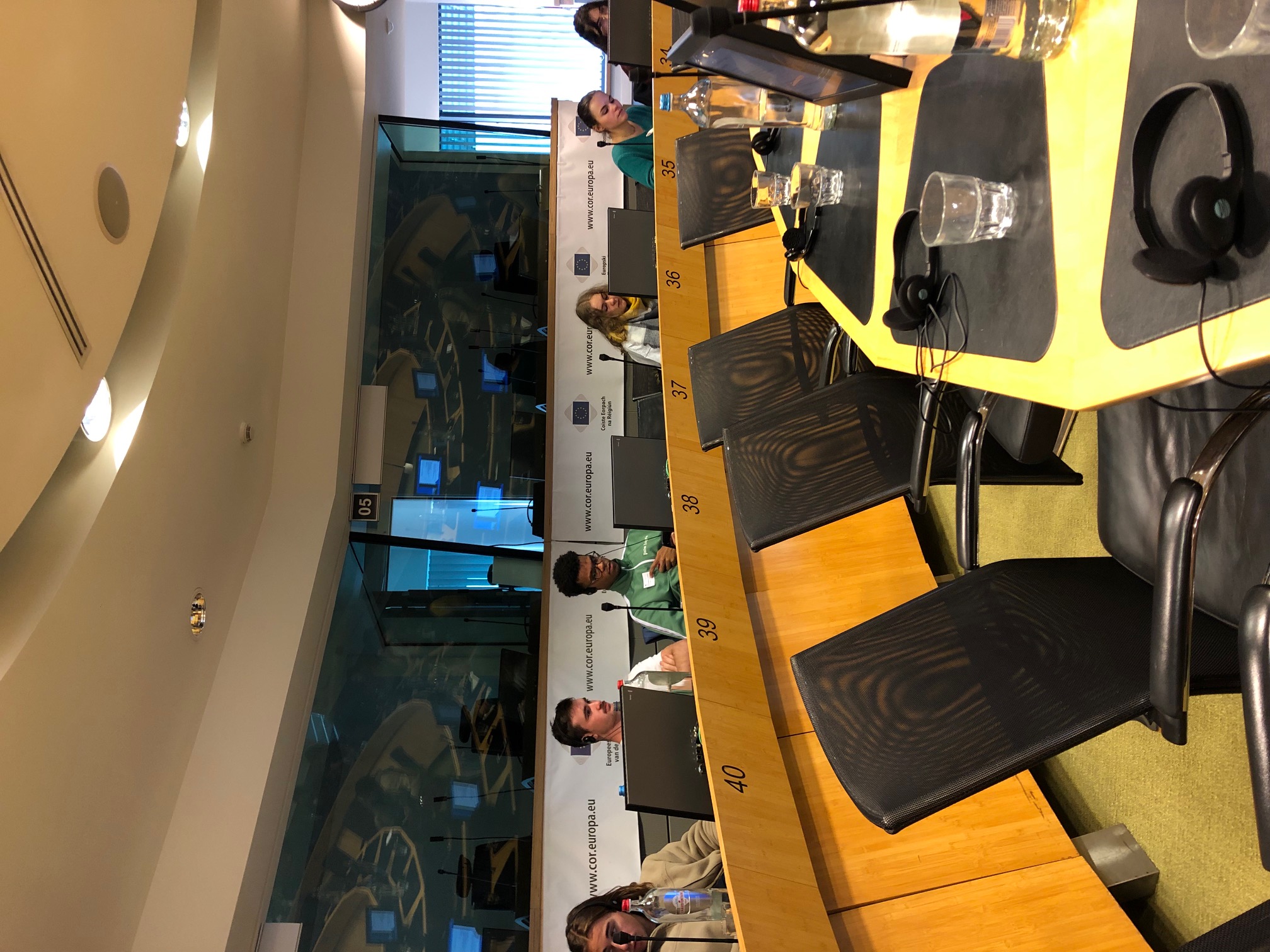
Study trip year 2
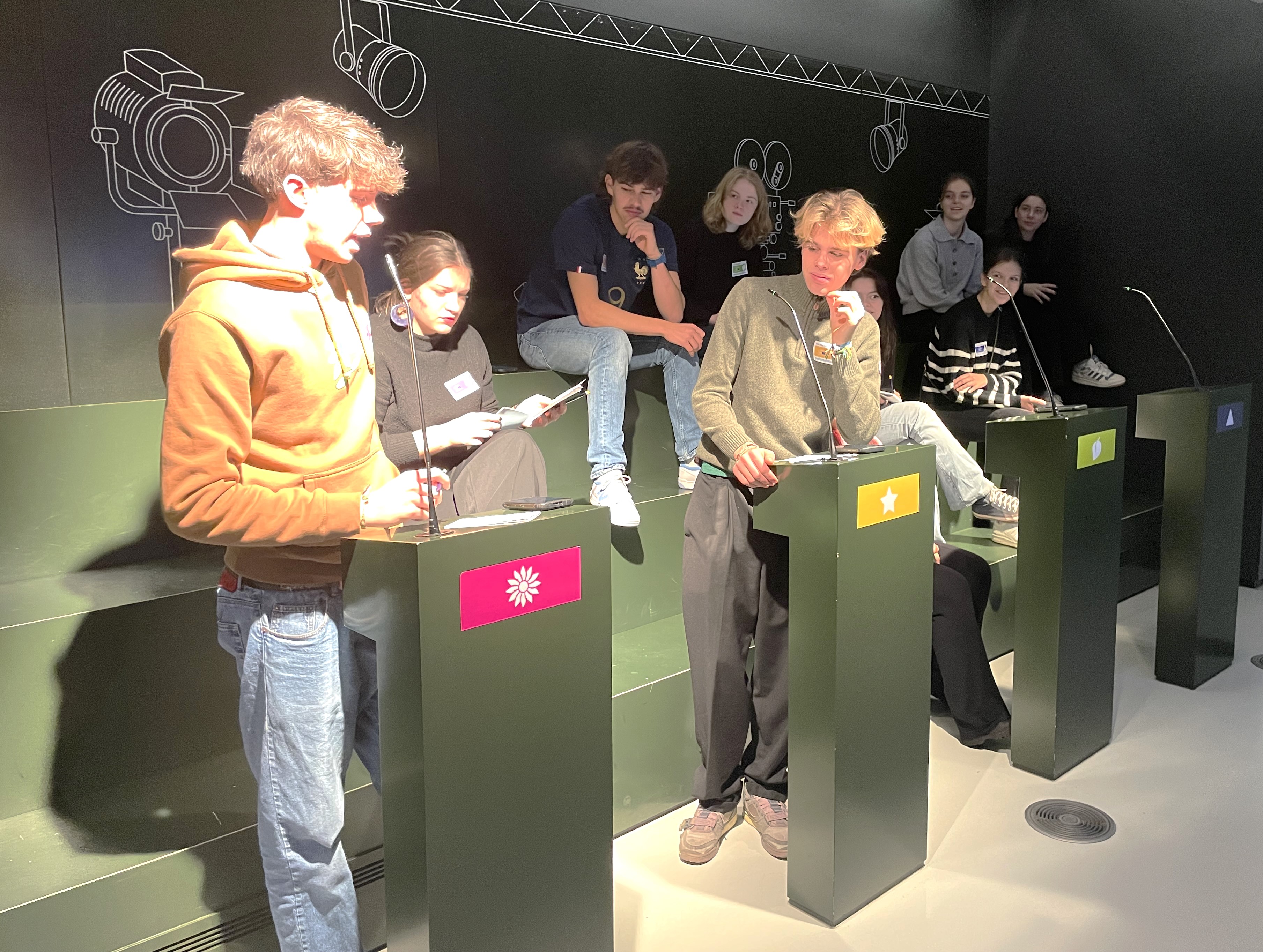
"Having the privilege to attend a session in the hemicycle was so awesome!"
"It was quite impressive to be submerged in an election for real laws."
"It was very nice to have the opportunity to see the European parliament. It permit us to have a concrete idea of how Europe manage with the rules. It was also a way to know better our classmates. i really appreciate this study trip."
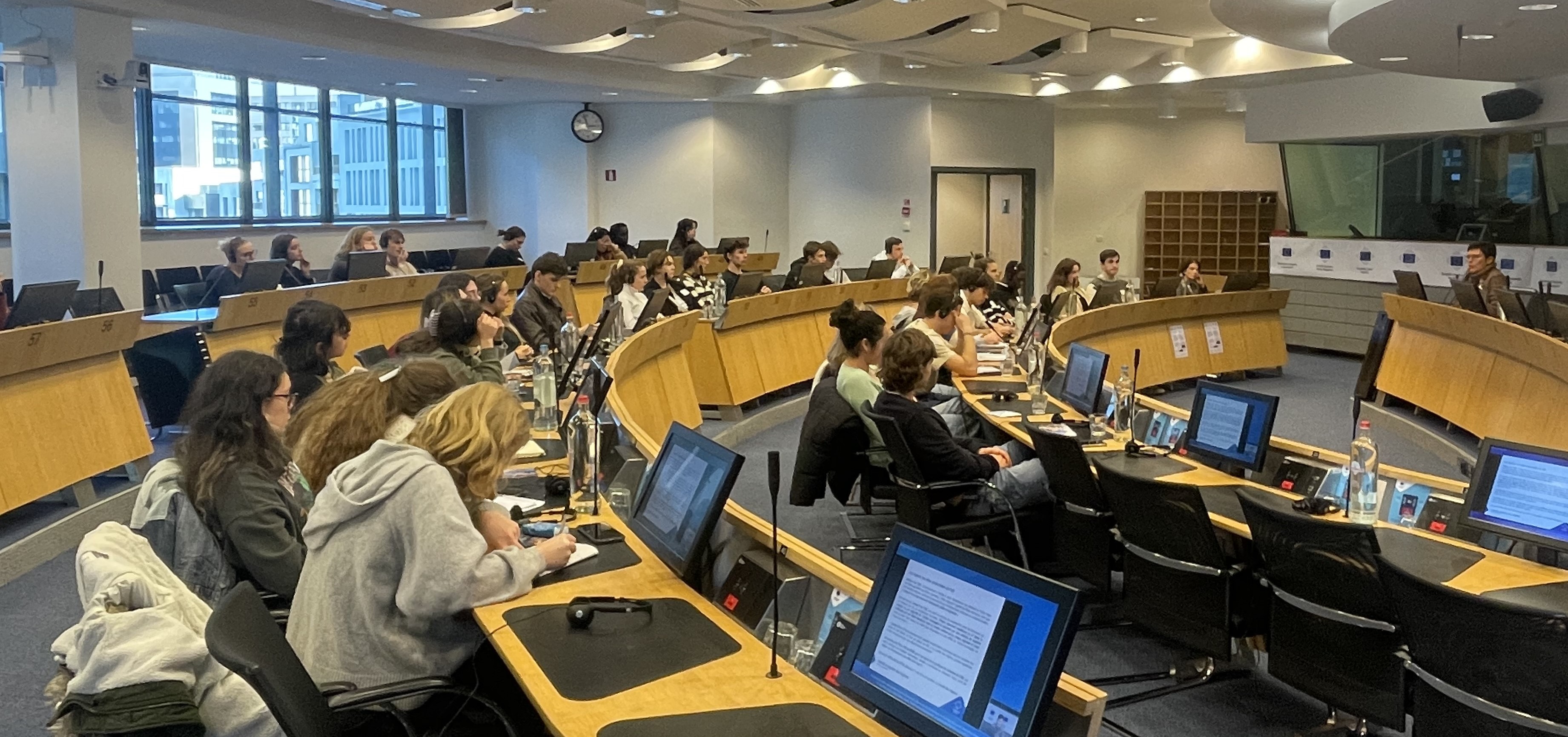
Study trip year 3
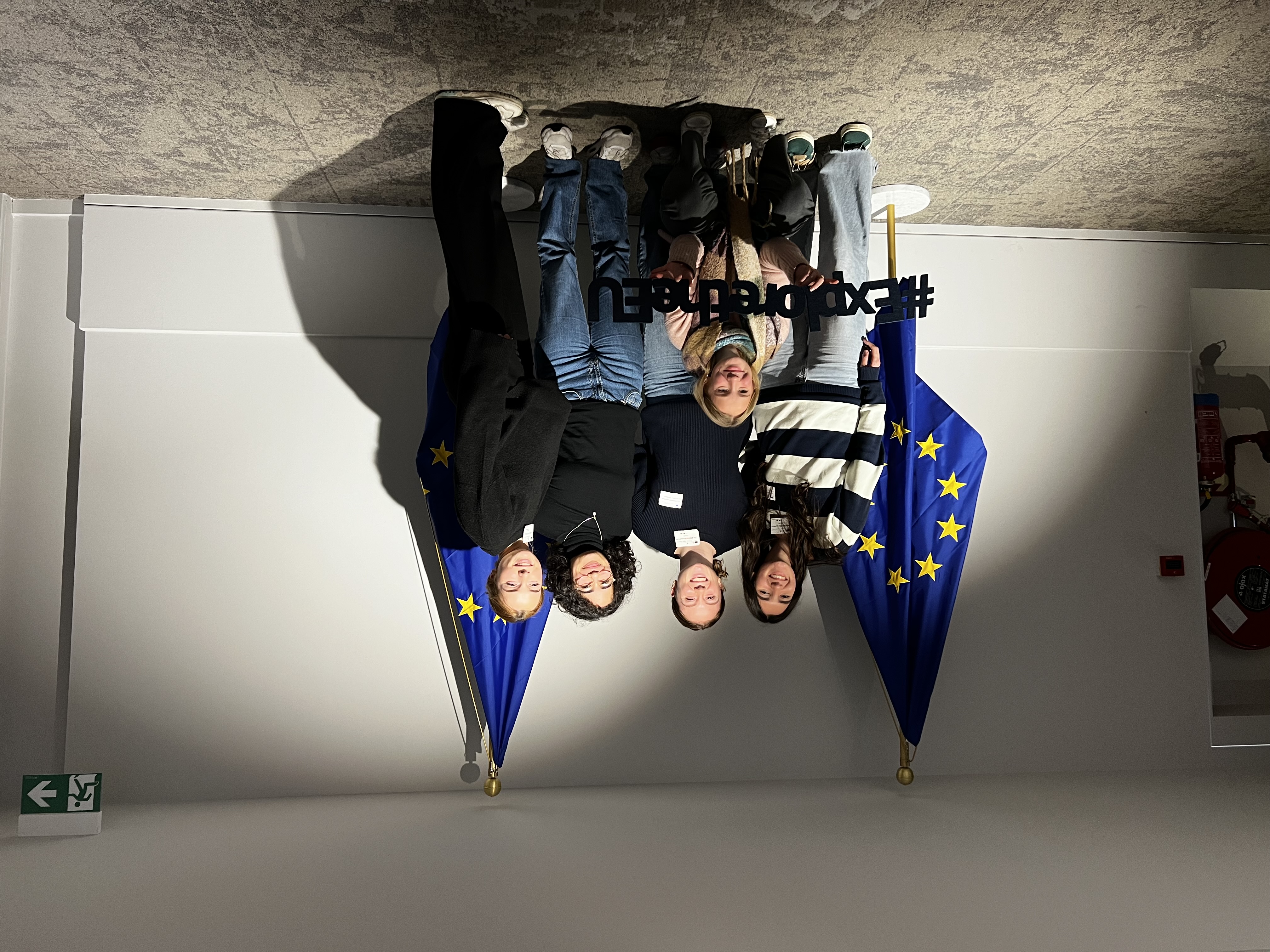
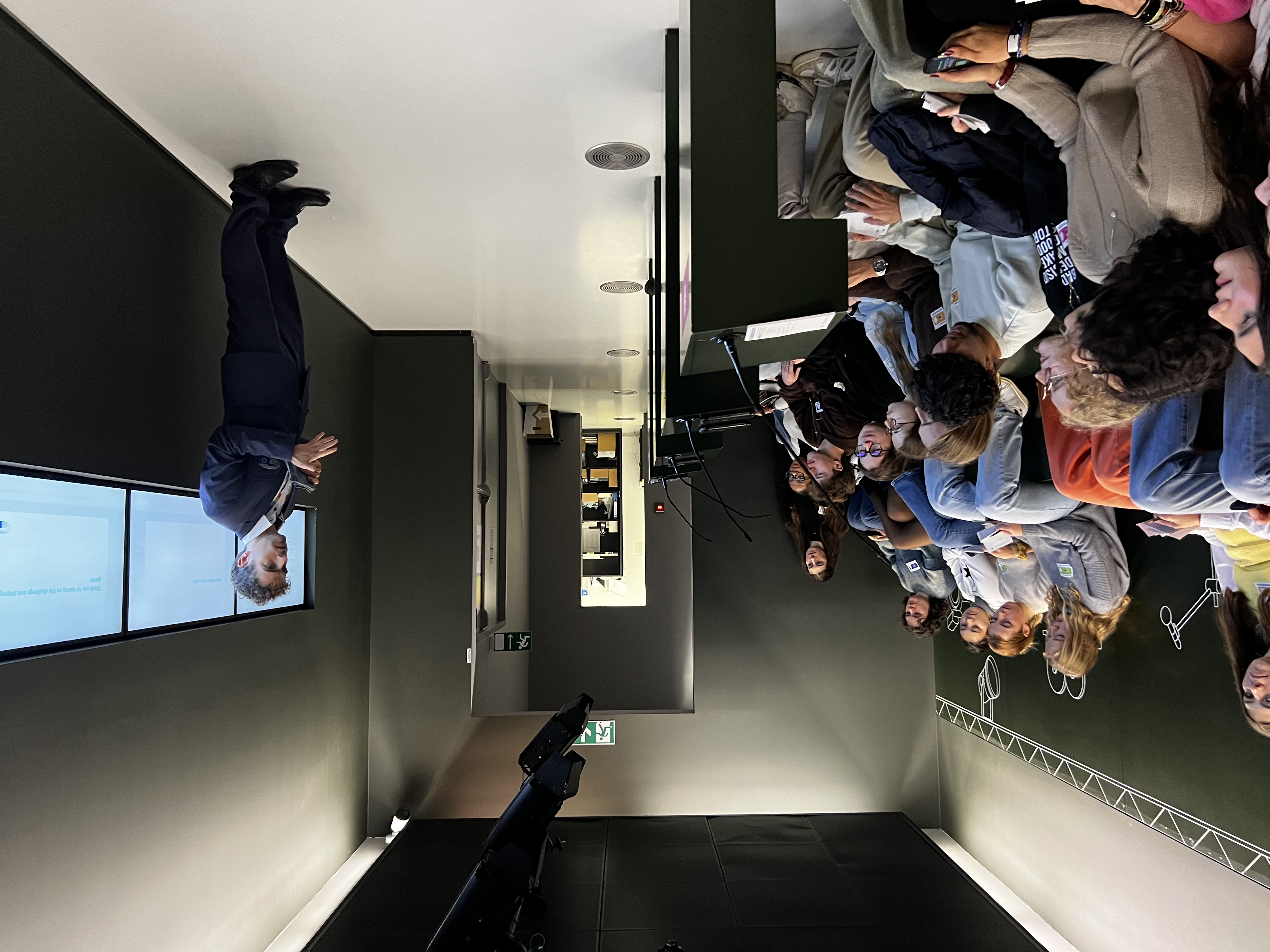
"The discovering of Brussels through the visit of the different European Institutions and with my classmates was very satisfying and well organised."
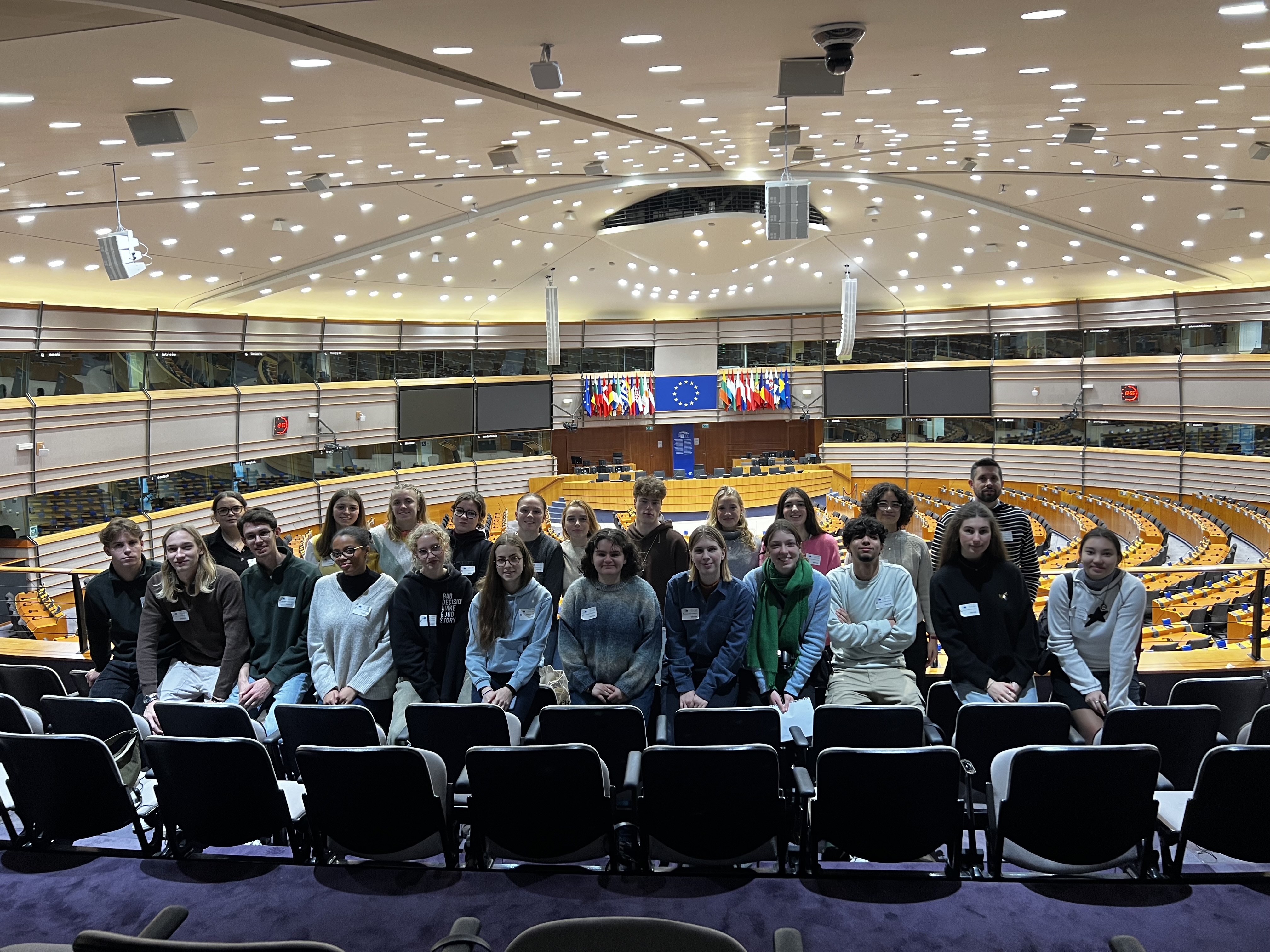
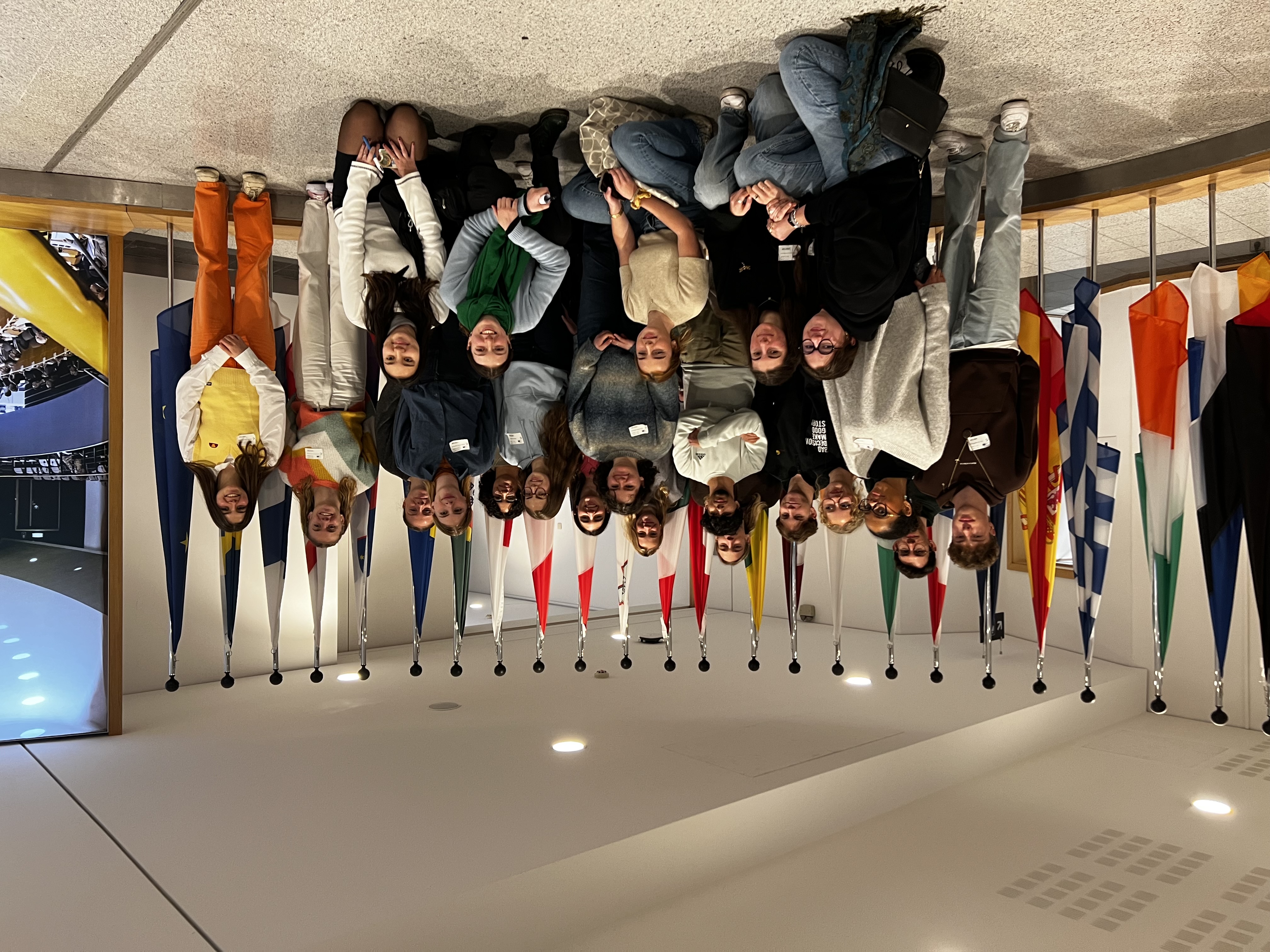
Weekly Seminars
The weekly Seminars allowed students to develop their curiosity, deepen their interest in specific issues and become aware of questions related to sustainability and respect for shared values. They also had the opportunity to improve their communication skills. The weekly Seminars took place throughout the year.
Weekly Seminars year 1
- Mr Philippe Tabary, October 26, 2022, "Europe and agriculture, from yesterday deficits to new expectations"
- John McClintock, January 17, 2023, " Money for French farmers or money for climate change"
- Adina Revol, April 11, 2023, "The green growth issue and a new approach to resource exploitation - The Green deal"
Weekly Seminars year 2
- John McClintock, February 21, 2024, "Migration into Europe - what is the role of our agricultural policy?"
- Agnieszka Parlinska & Ewa Stawicka, March 19, 2024, "The theorical background of the impact of innovation on sustainable development. case study - Use of modern technologies in decision making by Polish farmers."
- Andrea porro, May 13, 2024, "Innovation for Sustainable development"
Weekly Seminars year 3
- Salomé Piederriere, October 22, 2024, "Innovation in indoor farming methods"
- Borka Kovachevikj, December 11, 2024, "Environnement and Social Expert"
- François Hurpin, February 5, 2025, "Self-lead project: Promoting birds' biodiversity in urban areas (Germany)"
Over the course of these three years, the i-Safe-4-EU project has been a success, offering students the opportunity to get closer to the decision-making bodies of the European Union every year. A similar project, taking into account new issues, is planned for the coming years. It will be aimed at a different audience.

*This project is co-financed by the European Union. The views and opinions expressed, however, are those of the authors alone and do not necessarily reflect those of the European Union or the European Education and Culture Executive Agency (EACEA). Neither the European Union nor the EACEA can be held responsible.